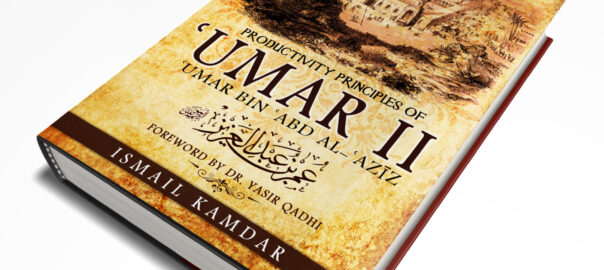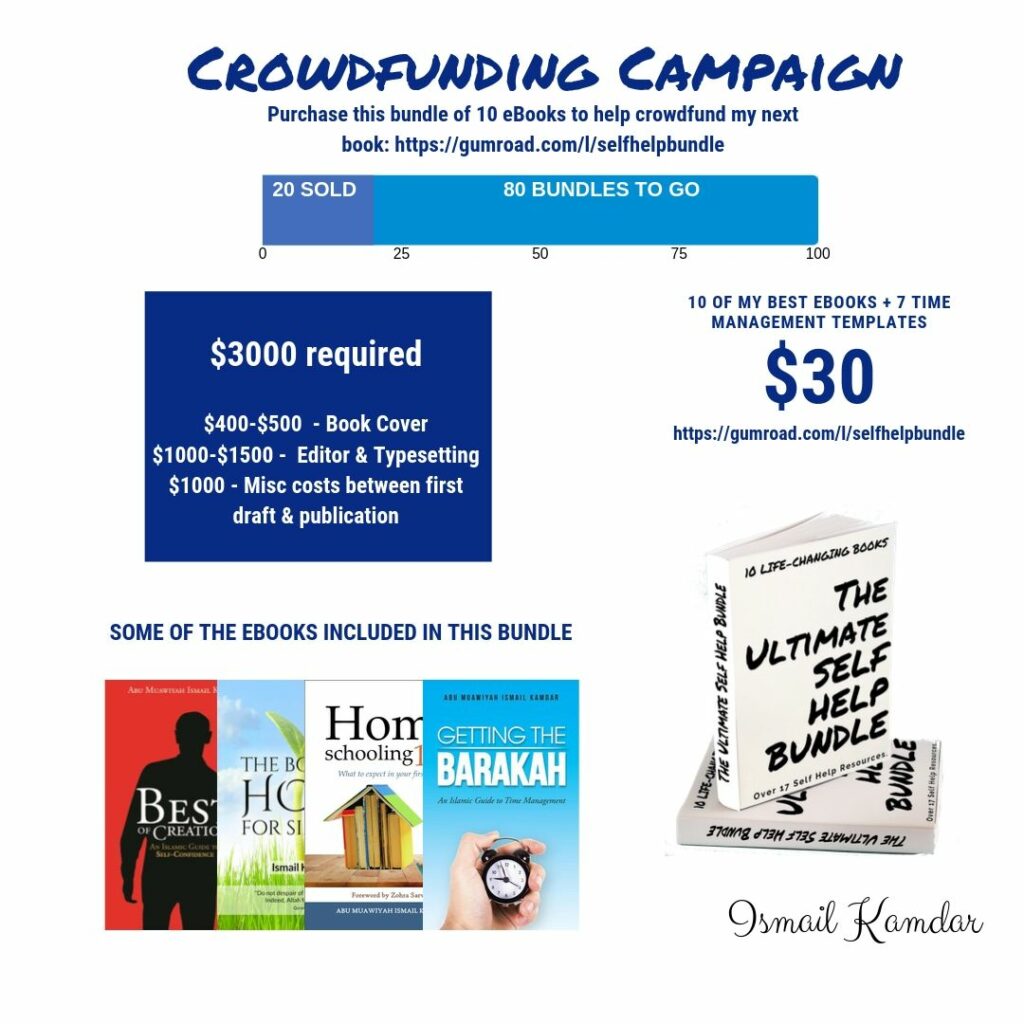Over the past few years, I have made it my goal to read more books each year than the year before. By increasing the number of quality books I read per year, I increase the amount of knowledge I gain every year. Reading daily is a habit that I encourage everybody to take up. It isn’t just something I preach, it is something I am committed to doing myself.
Having in previous years, read 20-40 books a year, I decided to up my goal this year to 50 books. Alhamdulillah, I am happy to announce that nine months into the year, I have already completed 51 books, and am on my way to completing 7 more.
Now, in reality, this number isn’t really that impressive. Some of my teachers read 100 or more books per year. But these teachers are also retired and have more time on their hands. I have to handle a university job, a freelance career, a writing career, and homeschooling my kids. So I am quite happy with my progress in building this habit.
So the question I have been getting a lot in the past few days is, “How did you manage to read so many books this year?” The answer is rather lengthy so I decided to write this post about. There are six important steps that helped me accomplish this goal.
1. Having an ever-increasing to-read list.
To ensure that I never reach a point in the year where I don’t know what to read next, I am constantly adding books to my to-read list. I utilize Goodreads to keep track of every book I read, am currently reading, and plan to read in the future.
I also use it to keep track of my progress towards my annual reading goals. Whenever I come across a book I might be interested in, I add it to my Goodreads to-read list. That way, I always know what I plan to read next once I am done reading my current set of books.
Recommendation: Get a Goodreads Profile, and start using it to track your progress.
2. Reading more than one book at a time.
I don’t stick to one book at a time. This can sometimes be very tedious, especially if reading for multiple hours a day, and if the book is lengthy. Instead, I focus on two or three books at a time. That way, as soon as my attention is waning from one book, I can switch to another to keep my mind fresh. By reading multiple books at a time, I am able to finish 5-7 books per month easily.
Recommendation: Build a habit of reading two books at a time. This will be even more effective is they are from completely different genres.
3. Reading for two to three hours a day.
I started my habit many years ago with a dedicated half an hour a day for reading. As the years have gone by, I have increased it by half an hour each year. Currently, I read for two or three hours a day, depending on my workload. In this way, I am able to read more books per month by reading for more hours per day.
Recommendation: If you don’t have a habit of reading yet, start with building the habit of reading for thirty minutes every day. Once you are accustomed to it, slowly increase the amount of time you spent reading daily.
4. Alternating between long and short books.
One obstacle that prevents many people from meeting their reading goals is getting stuck in a long book until you lose interest. My way around this is to read multiple books at a time, some short and some long. That way, even if it takes me three months to read a long book, I would have completed 10 other books during that same time using this method.
For example, Principles by Ray Dalio is a very lengthy book on investing and finance, I started reading it in February, and completed it in May. At the same time though, I alternated between reading this for an hour and reading a shorter book for an hour. As a result, I read 12 other books during this same time period.
Recommendation: Don’t get stuck on lengthy books. Read a shorter book alongside it, so that you can meet your goals and not lose motivation.
5. Speed-Reading only when needed.
There are two situations in which I choose to speed-read; when I am reading about a topic I am already very familiar with, and when I am re-reading an old book that I read many years ago. Many books discuss similar topics, to master a topic I tend to read at least 10 books on the topic. I will read the first one or two slowly, but then start speed-reading through sections of the others. In this way, I cover more ground faster without wasting time slowly reading something I already read before.
Sometimes I re-read books I have read many years ago to refresh my memory or get a new perspective on them. Our thoughts, knowledge, and experience develop with time, so it is often helpful to go back and re-read old books with a new perspective to understanding them better.
Recommendation: If you find the content of a book familiar, try speed-reading it. If you know of any books that you read many years ago and didn’t understand, try re-reading them again this year. You will be surprised how much better you understand them now.
6. Incorporating reading into my work tasks.
I primarily earn a living through three things; university teaching and management, freelance writing, and writing my own books. All three require extensive reading and research. As a result, I have the privilege of being able to read on the job and to get paid for it.
Often a client will give me a list of books to read before writing their book/article for them. In these cases, they are literally paying me to read books. Likewise, the university expects me to have the latest information in my field, so reading books on the subjects I teach during work hours is an expected part of the job.
And of course, for my own books, I need to research thoroughly before writing, so I large part of my writing process is extensive reading.
Recommendation: If you really want to spend a large portion of your day reading, choose a job/career which requires you to read and research a lot.
Conclusion
Utilizing these six steps I am able to read dozens of books per year. I accomplish this by having a constantly growing to-read list, reading multiple books at a time, and dedicating hours of my day to reading. I also alternate between big and small books, speed-read when necessary, and do work that requires extensive reading. This is how I met this goal.
I hope this sufficiently answered the question. 🙂
Best books I’ve read this year







